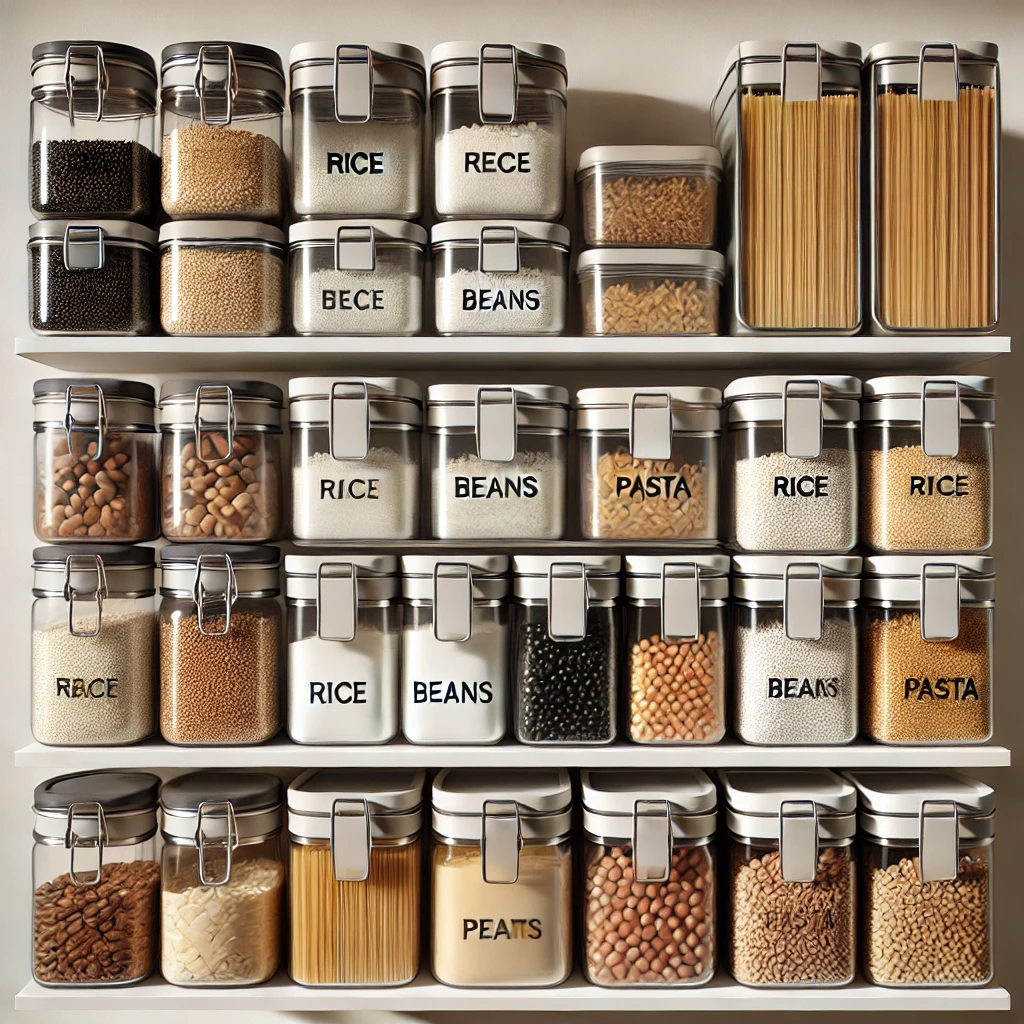Urban survival Food Storage and Rationing, for example, maintaining an adequate food supply in limited space, is essential. Unlike rural areas with ample storage options, city dwellers need to use creative strategies to store and ration food effectively. This guide covers practical methods for stockpiling and conserving food in small living spaces to help you stay prepared for any crisis.
Understanding Urban Survival Food Storage Challenges
Urban living presents unique food storage challenges, including limited space and close proximity to others. Here’s why careful planning is essential:
- Space Constraints: Apartments and small spaces limit your storage options, requiring efficient and compact solutions.
- High-Density Living: In emergencies, food can become scarce quickly in densely populated areas.
By understanding these challenges, you can develop strategies to build a sustainable food supply without cluttering your living space.

Essential Urban Survival Food Storage Techniques for Small Spaces
Use these methods to create a reliable food stockpile within a compact urban environment.
1. Focus on High-Calorie, Nutrient-Dense Foods
In emergencies, you’ll need foods that pack a lot of energy and nutrients into small packages.
- Options: Choose items like canned beans, nut butters, dried fruits, rice, and pasta.
- Benefits: These foods provide essential nutrients and have long shelf lives, making them ideal for stockpiling in small spaces.
2. Use Stackable Containers and Vacuum-Sealed Bags
Space-saving containers help you maximize every inch of storage space in your apartment.
- Stackable Bins: Choose stackable, airtight containers for dry goods like rice, pasta, and flour. Label each container for easy identification.
- Vacuum-Sealed Bags: Vacuum-sealed bags reduce bulk and keep food fresher for longer. Store these bags in drawers, under beds, or in closets to conserve space.
3. Opt for Multi-Purpose Ingredients
Stocking multi-use ingredients reduces the need for multiple items, conserving space.
- Examples: Canned tomatoes can be used in soups, stews, or pasta dishes; oats can serve as breakfast, baking ingredients, or even dinner if necessary.
- Rationale: Fewer items that serve multiple purposes allow you to stockpile a variety of meal options without overcrowding your storage space.
4. Store Canned Goods and Dehydrated Foods
Canned and dehydrated foods are ideal for urban survival as they have long shelf lives and are easy to store.
- Canned Foods: Items like canned vegetables, fruits, beans, and meats are compact and don’t require refrigeration.
- Dehydrated Foods: Dehydrated meals or freeze-dried foods provide valuable nutrients without taking up much space. They’re also lightweight and easy to rehydrate.
5. Utilize Hidden Storage Areas
Get creative with storage by using hidden areas in your apartment to stockpile food discreetly.
- Under Furniture: Use the space under beds or couches for storing items in flat, stackable containers.
- Inside Furniture: Ottomans, coffee tables with storage compartments, and closet organizers can be repurposed to hold food supplies.

Rationing Tips for Long-Term Urban Survival
Rationing your food supply is crucial during an extended crisis. These tips can help you make your supplies last.
1. Calculate Daily Caloric Needs
Knowing your daily caloric needs helps you plan meals and avoid over-consumption.
- Estimate Intake: Plan for approximately 2,000 calories per adult per day, adjusting for activity levels and personal needs.
- Portion Control: Use smaller plates or bowls to help control portion sizes, which can help extend your food supply.
2. Stick to a Meal Schedule
A regular eating schedule helps your body adjust and prevents overeating.
- Plan Three Small Meals Daily: Space out meals evenly to maintain energy levels.
- Snack Sparingly: Avoid unnecessary snacking to conserve food, focusing instead on nutrient-rich meals.
3. Use Bulk Ingredients Sparingly
Bulk items like rice, pasta, and beans should be rationed carefully to last through a prolonged crisis.
- Portion Bulk Foods Carefully: Measure portions before cooking to avoid waste.
- Supplement with Fresh Foraged Foods: If possible, supplement your meals with foraged items like dandelion greens or wild herbs from nearby parks or urban green spaces.
4. Rotate Your Food Stockpile Regularly
Maintaining fresh supplies is essential for a healthy diet. Rotate your stockpile regularly to avoid spoilage.
- Check Expiration Dates: Organize your stockpile by expiration date, using older items first.
- Replace Consumed Items: Each time you consume an item, try to replace it to maintain a steady supply.
5. Plan Balanced Meals
In a survival situation, it’s easy to rely heavily on carbs, but a balanced diet is essential for overall health.
- Include Protein, Fats, and Fiber: Balance carbs with protein (like canned meats or legumes), healthy fats (like peanut butter), and fiber (like canned vegetables) to sustain your energy levels.
- Avoid Excessive Processed Foods: While convenient, processed foods often lack essential nutrients and can lead to health issues if consumed long-term.
Conclusion
By building a strategic food storage and rationing plan, you can ensure a steady food supply even in a small urban apartment. Using high-calorie foods, compact storage solutions, and portion control, you can stay prepared and resilient during any crisis. Remember, a well-planned approach will help you remain calm, conserve resources, and face any challenge with confidence.
